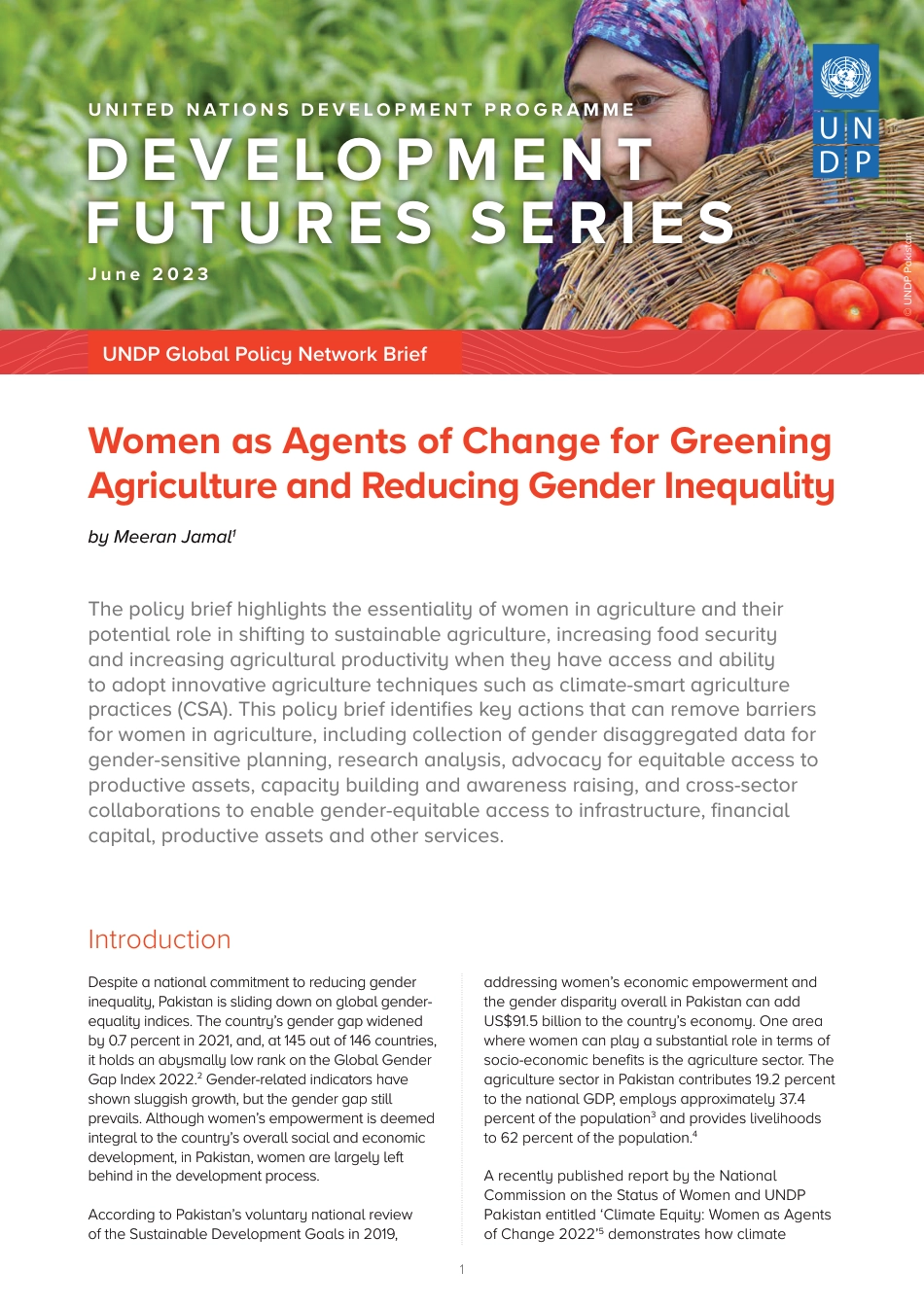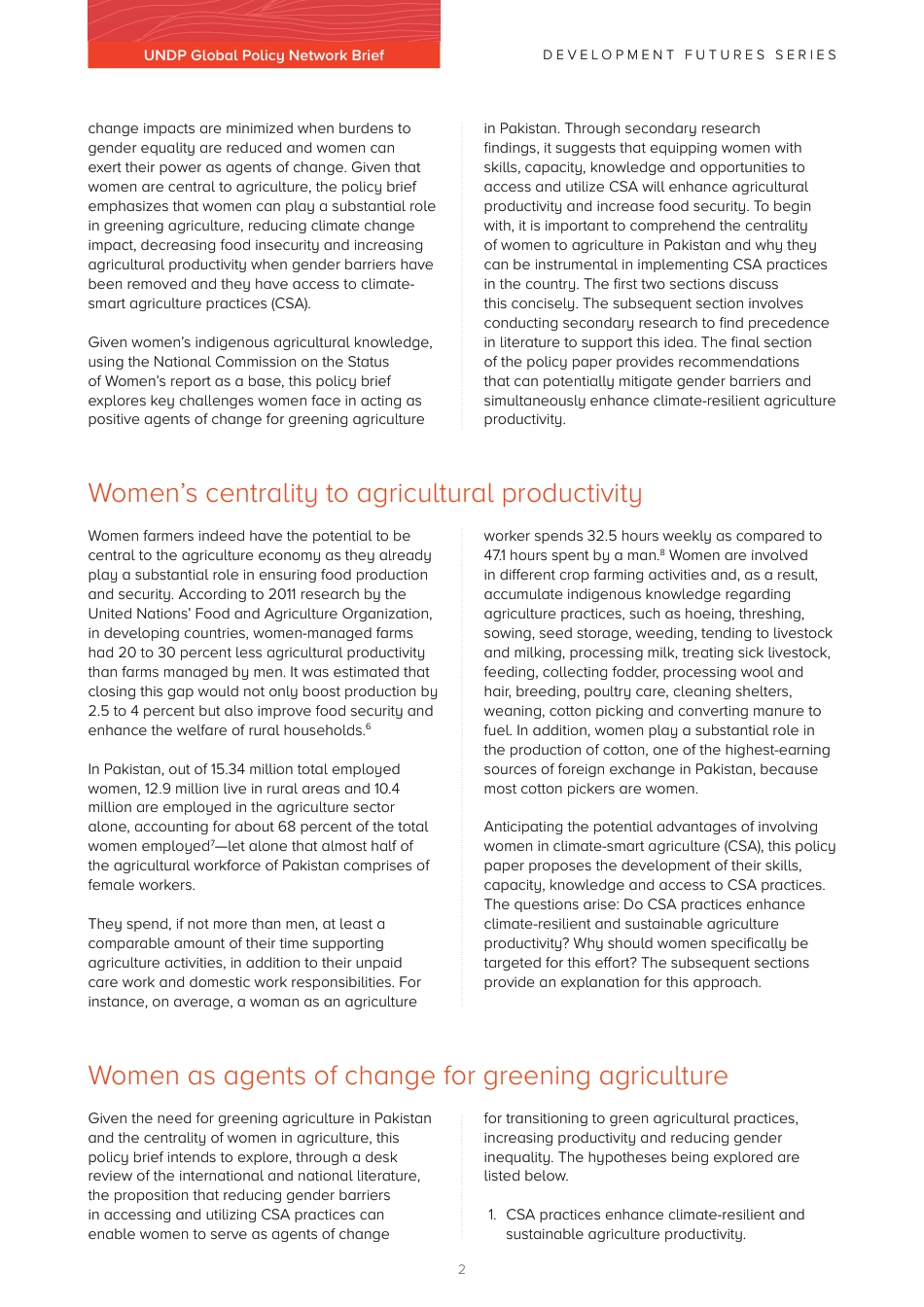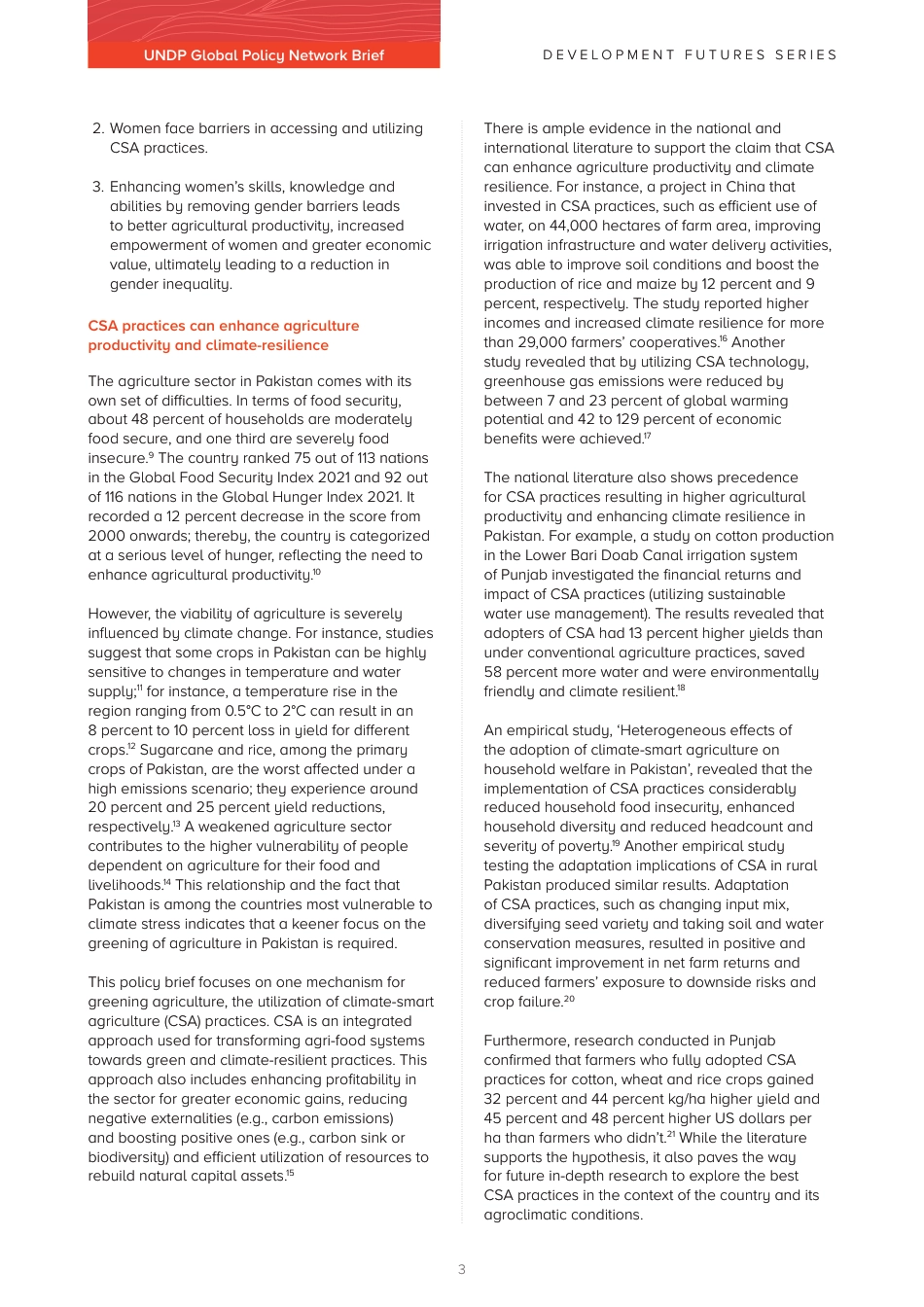1U N I T E D N AT I O N S D E V E L O P M E N T P R O G R A M M EJ u n e 2 0 2 3Women as Agents of Change for Greening Agriculture and Reducing Gender Inequalityby Meeran Jamal1The policy brief highlights the essentiality of women in agriculture and their potential role in shifting to sustainable agriculture, increasing food security and increasing agricultural productivity when they have access and ability to adopt innovative agriculture techniques such as climate-smart agriculture practices (CSA). This policy brief identifies key actions that can remove barriers for women in agriculture, including collection of gender disaggregated data for gender-sensitive planning, research analysis, advocacy for equitable access to productive assets, capacity building and awareness raising, and cross-sector collaborations to enable gender-equitable access to infrastructure, financial capital, productive assets and other services.IntroductionDespite a national commitment to reducing gender inequality, Pakistan is sliding down on global gender-equality indices. The country’s gender gap widened by 0.7 percent in 2021, and, at 145 out of 146 countries, it holds an abysmally low rank on the Global Gender Gap Index 2022.2 Gender-related indicators have shown sluggish growth, but the gender gap still prevails. Although women’s empowerment is deemed integral to the country’s overall social and economic development, in Pakistan, women are largely left behind in the development process. According to Pakistan’s voluntary national review of the Sustainable Development Goals in 2019, addressing women’s economic empowerment and the gender disparity overall in Pakistan can add US$91.5 billion to the country’s economy. One area...



